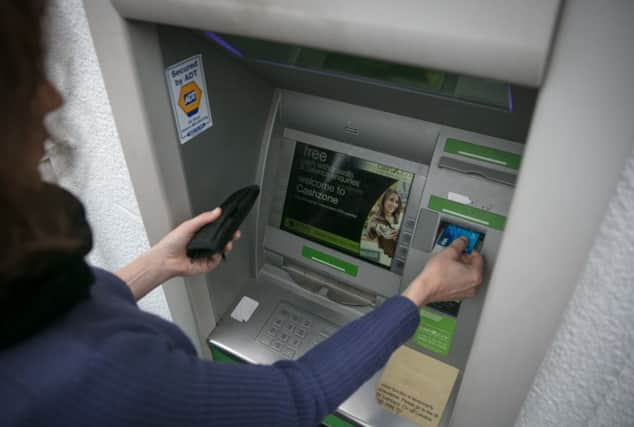Damning report brands banking system an ‘accident waiting to happen’


The study by the Adam Smith Institute think tank expresses concern that lenders remain highly leveraged – a key contributing factor to the severity of the financial crisis of the past decade.
It argues that the Bank of England’s stress tests are “worse than useless” as they “greatly overstate” the financial resilience of the UK banking system.
Advertisement
Hide AdAdvertisement
Hide AdKevin Dowd, senior fellow of the Adam Smith Institute and author of the report, said: “The fifth set of Bank of England stress tests is about as useful as a cancer test that cannot detect cancer. The stress tests seek to demonstrate a financial resilience on the part of UK banks that simply isn’t there.
“The Bank of England constantly sounds a false alarm on Brexit but is hopelessly complacent about the banking system. It should stop its Project Fear nonsense and focus on what it should have been doing all along – fixing the banking system.
“Another crisis is a matter of time and neither the UK banking system nor the Bank of England are remotely ready for it.”
The warning follows a string of generally robust results from Britain’s big banks.
Royal Bank of Scotland unveiled a larger-than-expected £1.7 billion payout for shareholders, delivering a fresh windfall for the taxpayer, though its latest results disappointed some in the City.
The Edinburgh-headquartered lender announced a special dividend of 12p per share alongside an ordinary interim payment of 2p per share.
An estimated £1bn of the £1.7bn payout will be returned to the taxpayer owing to the UK government’s stake in the bank following its bailout at the height of the financial crisis. It comes as RBS said it had achieved its strongest half-year, bottom-line profits in more than a decade, with attributable profits surging 130 per cent to £2bn. Operating pre-tax profits rose 48 per cent to £2.7bn.
Chief executive Ross McEwan said: “This is a solid set of results in challenging market conditions.”
Advertisement
Hide AdAdvertisement
Hide AdNo announcements were made regarding the hunt for McEwan’s successor, nor was any new provision made for PPI claims.
Shore Capital analyst Gary Greenwood noted: “Underlying profit performance was weaker than expected due to a pressure on net interest income but statutory profits benefited from a one off strategic disposal gain.”
Richard Hunter, head of markets at Interactive Investor, said: “After years in the investment wilderness, RBS is finally making its way back into the fold.
“All is not plain sailing, however. Provisions for impairments remain stubbornly high and net interest margin is inevitably under pressure given the interest rate backdrop.”